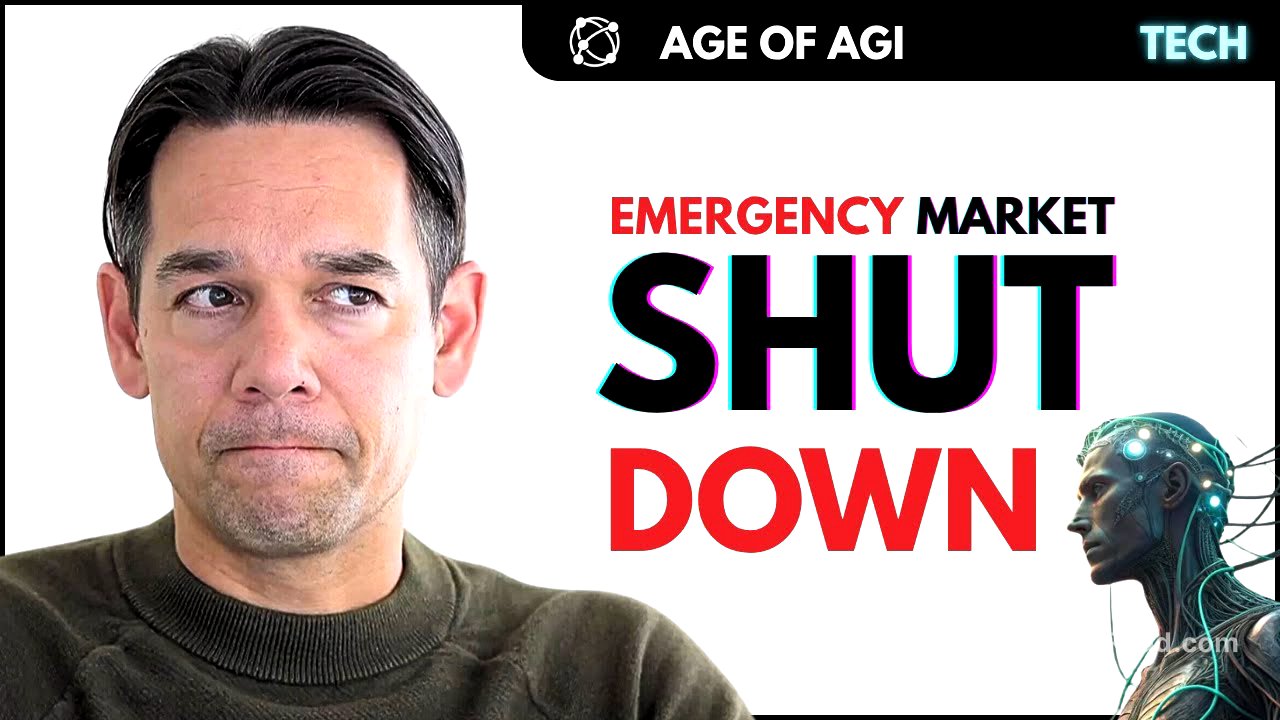TLDR;
This video discusses the end of free market capitalism due to the rise of Artificial General Intelligence (AGI). It argues that AGI is disrupting the foundations of our societies and economies, forcing governments to abandon free market principles in favor of national security and control. The speaker highlights a recent action by the Dutch government as an example of this shift and predicts a decade of total transformation starting in 2026, leading to significant changes in wealth distribution, political stability, and global power structures.
- Free markets are based on a shared ideological framework that is pro-human and individualistic.
- Intelligence is becoming national security, which means everything is becoming national security.
- The speaker predicts that 2026 will be the year where the decade of total transformation starts.
The Illusion of Free Market Capitalism [0:01]
The speaker begins by challenging the widely accepted notion of free market capitalism as the ultimate solution to human problems. They argue that the concept of international and globalized free markets, where anyone can sell their ideas or products without constraints, has been treated more as an ideology than a practical system. The speaker points out that the belief in free markets often overlooks the potential disadvantages for domestic workers who must compete with those in countries with significantly lower wages. This situation has led to debates about protectionism and national interests overriding free market principles, as seen with Trump's tariffs and Brexit.
AGI as the Catalyst for Change [2:51]
The emergence of Artificial General Intelligence (AGI) is presented as a game-changer that is disrupting the existing order. AGI is not just opening people's eyes but fundamentally altering the fabric of reality, compelling governments to take actions that contradict their free market ideologies. The speaker argues that AGI is shifting the focus from protecting domestic workers and farmers to ensuring national survival.
Dutch Government's Intervention: A Sign of the Times [3:43]
The speaker cites a Financial Times report about the Dutch government seizing control of Nexperia, a Chinese-owned chip maker in the Netherlands, as a key example of the end of free markets. The Netherlands, which controls crucial parts of the AI chip supply chain, took this action to safeguard its technological knowledge and capabilities, invoking a "goods availability act." This move signifies a breach of capitalist rules, as the government prioritized national interests over ownership rights, heralding a new era where free markets are no longer the primary consideration.
The First Principles of Free Markets [7:06]
The speaker argues that free markets have been mainly a brainwashing technique. While acknowledging the merits of property rights and other capitalist principles, the speaker questions the underlying first principles of free markets. They contend that free markets only function effectively within a shared ideological framework that is pro-human, Western, and individualistic. Without these conditions, free markets can lead to tyranny, where a powerful entity dominates and controls everything.
Intelligence as National Security [8:54]
Historically, national security has always placed limits on the freedom of the market, particularly regarding sensitive technologies like rockets and missiles. The speaker introduces a twist: in the age of AGI, intelligence itself is becoming a matter of national security. A country with vastly superior AGI can overcome military disadvantages and rapidly enhance its economy, making intelligence the key determinant of national power. Consequently, everything related to intelligence becomes a national security concern, further eroding the principles of free markets.
The Disruption of Reality and the Role of the State [11:38]
The speaker asserts that the age of AGI is disrupting the very fabric of our reality, including our assumptions about states, societies, economies, and daily life. This disruption is happening rapidly, as governments recognize the implications of AGI. The speaker questions the need for free markets when economic gain increasingly comes from AGI rather than national competition. In an age of potential abundance created by AGI, the role of the state and the significance of national interests are fundamentally altered.
Timeline of Transformation: 2025 to 2029 [14:48]
The speaker reiterates their prediction that 2025 marked the beginning of the singularity, a process of self-recursive improvement of AGI. They forecast that 2026 will be the start of a decade of total transformation, leading to explosive changes in inequality, productivity, corporate profits, and political instability by 2028. By 2029, the "event horizon," the speaker believes that the world will be unrecognizable, with power structures, borders, and control dynamics fundamentally changed.
Call to Action: Pioneerlands [17:21]
The speaker promotes Pioneerlands, a community for individuals who understand these coming changes and want to take action. The primary goal is to make money, as capital will become increasingly important in a world where labor and traditional technology become less relevant. The speaker concludes by emphasizing that the Dutch government's actions reflect a broader understanding that free markets alone are no longer sufficient, signaling a move towards greater control and intervention in the face of AGI. The speaker characterizes the coming era as one of chaos but also of grand opportunity for those who are quick-thinking and pro-human.









